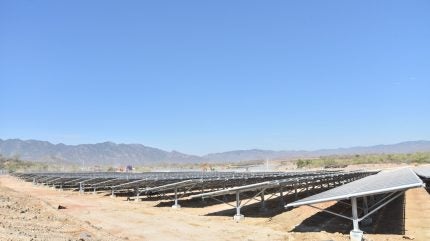
The European Union (EU) is expected to experience its first annual downturn in solar energy expansion in a decade, according to SolarPower Europe’s 2025 mid-year analysis.
This anticipated decrease comes as some member states reduce subsidies for rooftop solar installations, reflecting a shift in political priorities amid economic pressures.

Discover B2B Marketing That Performs
Combine business intelligence and editorial excellence to reach engaged professionals across 36 leading media platforms.
According to SolarPower Europe report, the EU’s projected new solar capacity for 2025 stands at 64.2GW, marking a slight drop of 1.4% from the previous year’s installation of 65.1GW.
The anticipated year-on-year decline would represent the first slowdown in the growth of Europe’s solar market since 2015, potentially hindering the region’s rapid transition to clean energy.
In 2023, solar capacity growth surged by 51%, following a more modest increase of just 3% the previous year.
Reuters reported that in the past month, solar energy accounted for 22% of the total electricity generated in the EU, making it the largest single source of power generation for that period.

US Tariffs are shifting - will you react or anticipate?
Don’t let policy changes catch you off guard. Stay proactive with real-time data and expert analysis.
By GlobalDataHowever, current deployment rates suggest that by 2030, the EU will miss its target by approximately 27GW out of the necessary 750GW for meeting climate objectives and reducing dependence on Russian energy sources.
A factor behind this shortfall is due to fewer residential rooftop panel installations, which are expected only to account for 15% of new capacity this year, a reduction from their 30% share between 2020 and 2023.
Countries such as Germany and France have begun scaling back feed-in tariff payments for rooftop systems; similarly, support measures are being cut in the Netherlands for households exporting surplus power back into the grid system.
SolarPower Europe deputy CEO Dries Acke said: “The number may seem small, but the symbolism is big. Market decline, right when solar is meant to be accelerating, deserves EU leaders’ attention.
“Europe needs competitive electricity, energy security, and climate solutions. Solar delivers on all of those needs. Now policymakers must deliver the electrification, flexibility and energy storage frameworks that will drive solar success through the rest of the decade.”





